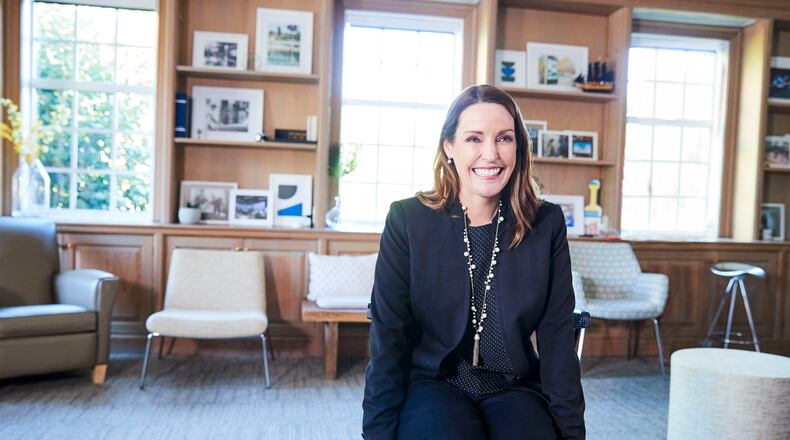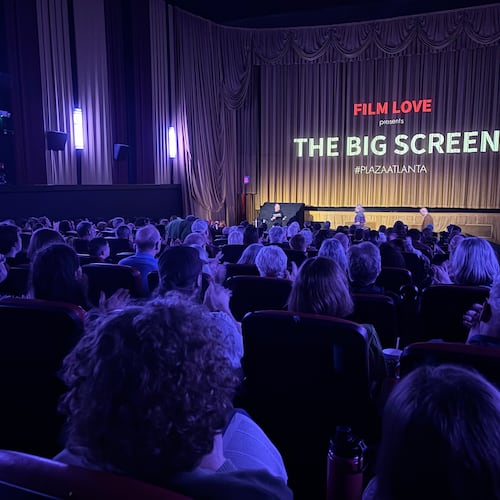Jennifer Dorian, a veteran at Turner Broadcasting in Atlanta, has signed on to become chief executive officer of Public Broadcasting Atlanta, which runs 90.1/WABE-FM and WPBA-TV.
Her starting date is January 11, 2021.
She takes over for Wonya Lucas, who left in August to run Crown Media, the owners of the Hallmark Channel and affiliate stations.
Dorian is facing fresh challenges for an operation negatively impacted by the pandemic on both the TV and radio sides as the operation tries to expand its digital footprint as well.
The operation’s most recent public financial statements go back to the year ending July 2019 and showed a major drop in cashflow from 2018 after PBA invested more dollars into its TV programming budget.
Dorian, in an interview with The Atlanta Journal-Constitution Tuesday, said she will be an “complementary additive resource” to the newsroom run by chief content officer Scott Woelfel. “I want to be a rallying resource and do a lot of fundraising,” she said. “I want to reach out and do more collaboration with different partners in Atlanta.”
She has a rich history in corporate America. She worked at Pizza Hut as a new products marketing manager in the early 1990s, then became manager of sports and leisure strategy at Coca Cola. In 2000, she joined the Turner family first as senior vice president of branding, then progressed into bigger roles related to branding and strategy.
“She did very well for Turner,” said Al Meyers, a vice president at Turner from 1998 to 2008. He credited her with helping build the TBS “very funny” brand. “She brought in a lot of younger demographics with that branding. She was able to bring the right programming to fulfill that brand promise.”
Steve Koonin, a former TBS/TNT programming chief who hired Dorian in 2000, considers her “a spectacular hire. Jennifer is a cheerleader for the community. Public radio and TV are community at their core. She understands culture and diversity and inclusion. She will be able to provide incredible context about Atlanta in a very entertaining way.”
In 2014, she took over Turner Classic Movies, which celebrated its 25th-anniversary last year.
“I’ve been part of strategic planning at Turner for 19 years,” she told The Atlanta Journal-Constitution at the time. “I can vouch we’ve never questioned the TCM mission or strategy. By staying commercial-free, we offered something special to distributors and fans.”
In 2017, she spoke with The Atlanta Business Chronicle about what she has learned over the years: “I take pride in truly being myself as a leader — I’m willing to show imperfections and take risks. I’ve matured over the years by learning to worry less about conformity and think more about how to make a unique contribution.”
Dorian, 54, left Turner in January 2020.
She said she has spent the past three decades listening to WABE-FM and virtually her entire life watching PBS programming. “I certainly remember the classical music era,” she said. “Second Cup and Valerie Jacksons’s Book Club. I also grew up on PBS, from Big Bird to Ken Burns.”
Dorian said she hopes to help usher in more innovative strategies to bring in more viewers and listeners via streaming and podcasts while maintaining the power of the legacy platforms.
She developed Turner’s experimental streaming service focused on arthouse films called FilmStruck, which ran from 2016 to 2018. (All of Turner’s operations have now been incorporated into WarnerMedia as a whole.)
“I did a learn a fair amount building and launching the service,” Dorian said. “The content and editorial curation. The technology. Subscriber acquisition and how to reduce churn. I can apply all that basic experience here.”
Chuck Taylor, a board member and former board chairperson for PBA, said they had a raft of great candidates but Dorian rose to the top.
“She’s a wonderful combination of ability and thoughtfulness and creativity,” he said. “She’s a mile-a-minute idea person.”
Taylor said PBA is facing revenue challenges and generating fresh avenues for cash will be one of her top jobs. “This whole industry is changing,” he said. “Nobody quite knows how it will look like. We need to rethink television. We need to figure out how to monetize podcasts. We need to figure out where the technology and industry is going and how to keep up. We can’t just be an old-fashioned media company. That won’t cut it in the long haul.”
About the Author
Keep Reading
The Latest
Featured




